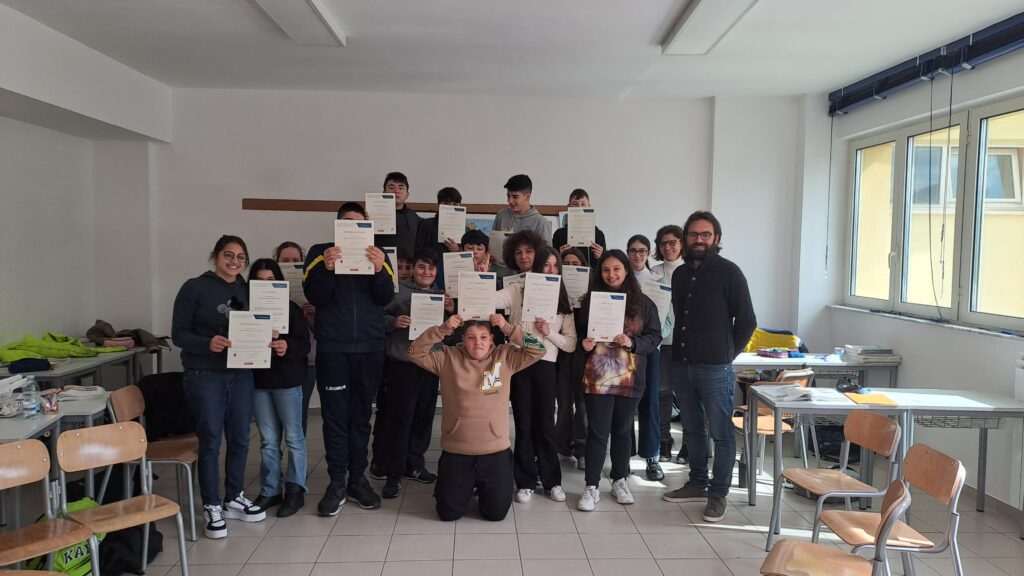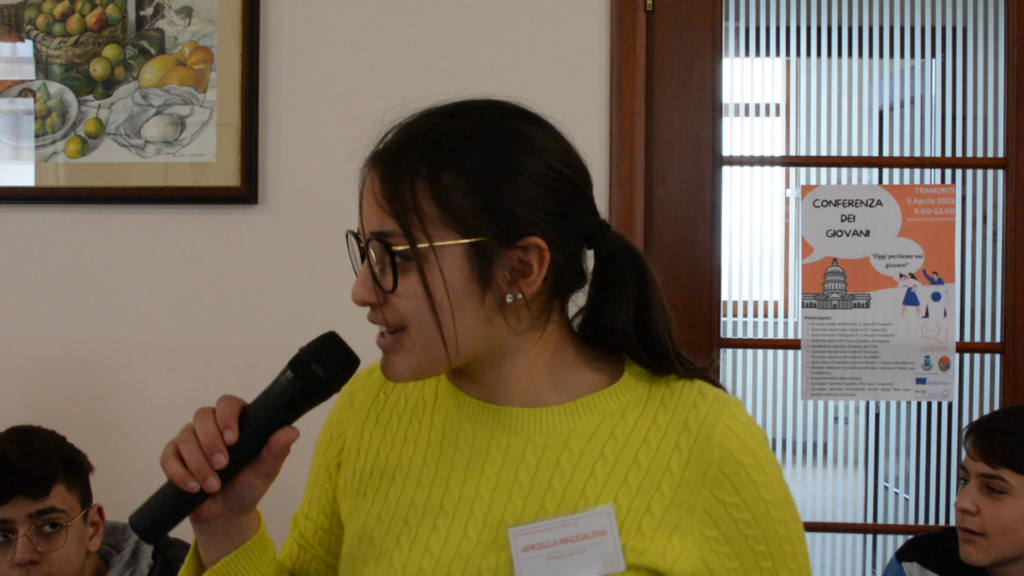Young people are often seen as passive recipients of policies and services, rather than active agents of change and democracy. However, young people have the right to express their views and participate in decision-making processes that affect them, as stated in Article 12 of the UN Convention on the Rights of the Child (UNCRC). Moreover, child participation can benefit not only children themselves, but alsosociety as a whole, by fostering civic engagement, social inclusion and democratic values.
This article will explore some of the challenges and opportunities, the inclusion of young people in the political process brings and give some examples based on recent actions taken by ACARBIO itself to enhance political participation and, most of all, awareness among the children of the Tramonti middle school.

Challenges for child participation
One of the main challenges for child participation is the lack of recognition and respect for children’s competencies and abilities to contribute to political life. While often dismissed as immature or uninformed, many adults miss the main objective when it comes to involving children into politics. This being not to overwhelm them with responsibility and difficult decisions, but to inform them of the way politics work on a local but also national level and help them make informed decisions.
Opportunities for child participation
Despite these challenges, there are also some promising opportunities for enhancing child participation in political and democratic life in the EU. One of them is the new EU Strategy on the Rights of the Child [1](2021-24), which aims to promote and protect children’s rights across all EU policies and actions. The strategy includes several commitments to strengthen child participation, such as.
- Establishing an EU Children’s Participation Platform, to connect existing child participation mechanisms at local, national and EU level, and involve children in the decision-making processes at EU level.
- Creating space for children to become active participants of the European Climate Pact and the Education for Climate Coalition, by making pledges or becoming Pact Ambassadors.
- Developing and promoting accessible, digitally inclusive and child friendly versions and formats of the Charter of Fundamental Rights and other key EU instruments.
- Developing and promoting guidelines on the use of child friendly language in documents and in stakeholders’ events and meetings with child participants.
- Including children within the Fundamental Rights Forum of the EU Agency for Fundamental Rights (FRA) and the Conference on the Future of Europe.
- Conducting child-specific consultations for relevant future initiatives.
- Strengthening expertise and practice on child participation among Commission staff and the staff of EU agencies.
Another very recent opportunity for children on a local level was facilitated by ACARBIO under the name of “My first steps of political participation”, where children of the middle school in Tramonti worked together with Volunteers from ACARBIO to Manifest their ideas and wishes for new initiatives on the territory and present them at the “Conference of young people” to local politicians.
The Project was structured into two phases with the first phase being a workshop where the children divided into groups centered around a specific topic connected to local politics in Tramonti. Working together, they came up with questions which they got to ask during the second phase of the project which was a youth conference. Here, several local politicians from Tramonti, such as the mayor and the vice mayor, and the surrounding municipalities such as Pagani listened to the questions of the children and tried to give answers to them. Finishing with propositions on how to improve Tramonti to make it more suitable for young people, the children therefore experienced their first political discourse.
Not less but more participation
Child participation in political and democratic life is not only a right but also a necessity. The main problem of missing participation is that the responsible people don’t know how to do it, have seen no one ever do it and have no idea that they can even address the topic. That is why ACARBIO worked together to with both the middle school and the municipality of Tramonti, to bring a unique project to life, which definitely was a new and important experience for everyone.
[1] Rights of the child (europa.eu)
